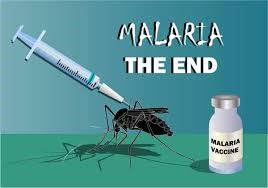Malaria is a devastating disease that poses a significant health burden in Nigeria. It is estimated that Nigeria accounts for almost 25% of global malaria cases, making it one of the most affected countries in the world. Despite efforts to control malaria, including the development of vaccines, Nigeria has yet to fully utilize a malaria vaccine. This essay will explore the reasons behind Nigeria's delay in utilizing a malaria vaccine.
One primary reason why a malaria vaccine is yet to be used in Nigeria is the lack of funding and resources for research and development. Vaccine development requires substantial financial investment, which Nigeria, being a low-income country, struggles to prioritize within its limited healthcare budget. The high cost of clinical trials, vaccine production, and distribution has hindered progress in this area.
Another reason is the complex nature of malaria and the challenges it presents for vaccine development. Malaria is caused by different parasite species, making it difficult to develop a universal vaccine that is effective against all strains. Additionally, the malaria parasite has a complex life cycle and undergoes various stages of development, which poses challenges for vaccine development.
Furthermore, the lack of a robust healthcare system in Nigeria contributes to the delay in utilizing a malaria vaccine. Weak infrastructure, including insufficient healthcare facilities, lack of trained personnel, and inadequate logistics, hampers the effective delivery of vaccines to the population. This lack of infrastructure prevents the successful implementation of any vaccination campaign, including a malaria vaccine.
Moreover, there is a lack of public awareness and acceptance of vaccines in Nigeria. Misconceptions and misinformation about vaccines are prevalent, leading to vaccine hesitancy among the population. This can be attributed to cultural beliefs, religious views, and mistrust in the healthcare system. Without a high level of acceptance and demand for vaccines, it becomes challenging to implement an effective and widespread vaccination program.
Additionally, there are challenges related to the cold chain system required for storing and transporting vaccines. Malaria vaccines, like other vaccines, need to be kept at a specific temperature to remain effective. Nigeria, with its hot climate and inadequate cold chain infrastructure, faces difficulties in maintaining the cold chain requirements, which restricts the use of certain vaccines, including malaria vaccines.
Moreover, there are regulatory challenges in approving and licensing vaccines in Nigeria. The process of obtaining regulatory clearance for a new vaccine can be complex and time-consuming, involving rigorous testing and evaluation. This regulatory process can contribute to delays in introducing new vaccines, including a malaria vaccine, into the market.
Furthermore, the political and governance issues in Nigeria have also contributed to the delay in utilizing a malaria vaccine. Frequent political and leadership changes, corruption, and lack of political will towards healthcare priorities have hindered the progress in implementing malaria control strategies. Political instability and weak governance have hindered the effective planning and coordination required for vaccine implementation.
Additionally, the limited availability and accessibility of healthcare services in rural areas pose challenges to implementing a malaria vaccine. Rural regions of Nigeria have limited access to healthcare facilities, making it difficult to deliver vaccines to the population. This geographic disparity in healthcare infrastructure contributes to the delay in utilizing a malaria vaccine in Nigeria.
Furthermore, the high prevalence of poverty in Nigeria contributes to the delay in utilizing a malaria vaccine. Families struggling to meet their basic needs often prioritize immediate concerns over long-term health measures. The cost of vaccines, transportation to healthcare facilities, and other associated expenses present barriers to accessing vaccines.
Finally, the limited collaboration and coordination among stakeholders also hinder the utilization of a malaria vaccine in Nigeria. Effective vaccine implementation requires collaboration between government agencies, researchers, healthcare providers, and community leaders. The lack of coordination and cooperation among these stakeholders has slowed down progress toward utilizing a malaria vaccine.
In conclusion, several reasons contribute to the delayed utilization of a malaria vaccine in Nigeria. These include limited funding and resources, the complex nature of malaria, a weak healthcare system, lack of public awareness and acceptance, challenges in maintaining the cold chain, regulatory issues, political and governance challenges, limited healthcare accessibility in rural areas, high poverty rates, and limited collaboration among stakeholders. Addressing these obstacles is essential to ensure the successful introduction and utilization of a malaria vaccine in Nigeria, ultimately reducing the burden of malaria on the population.
Visit Our Shop For Various Quality Healthcare Products
